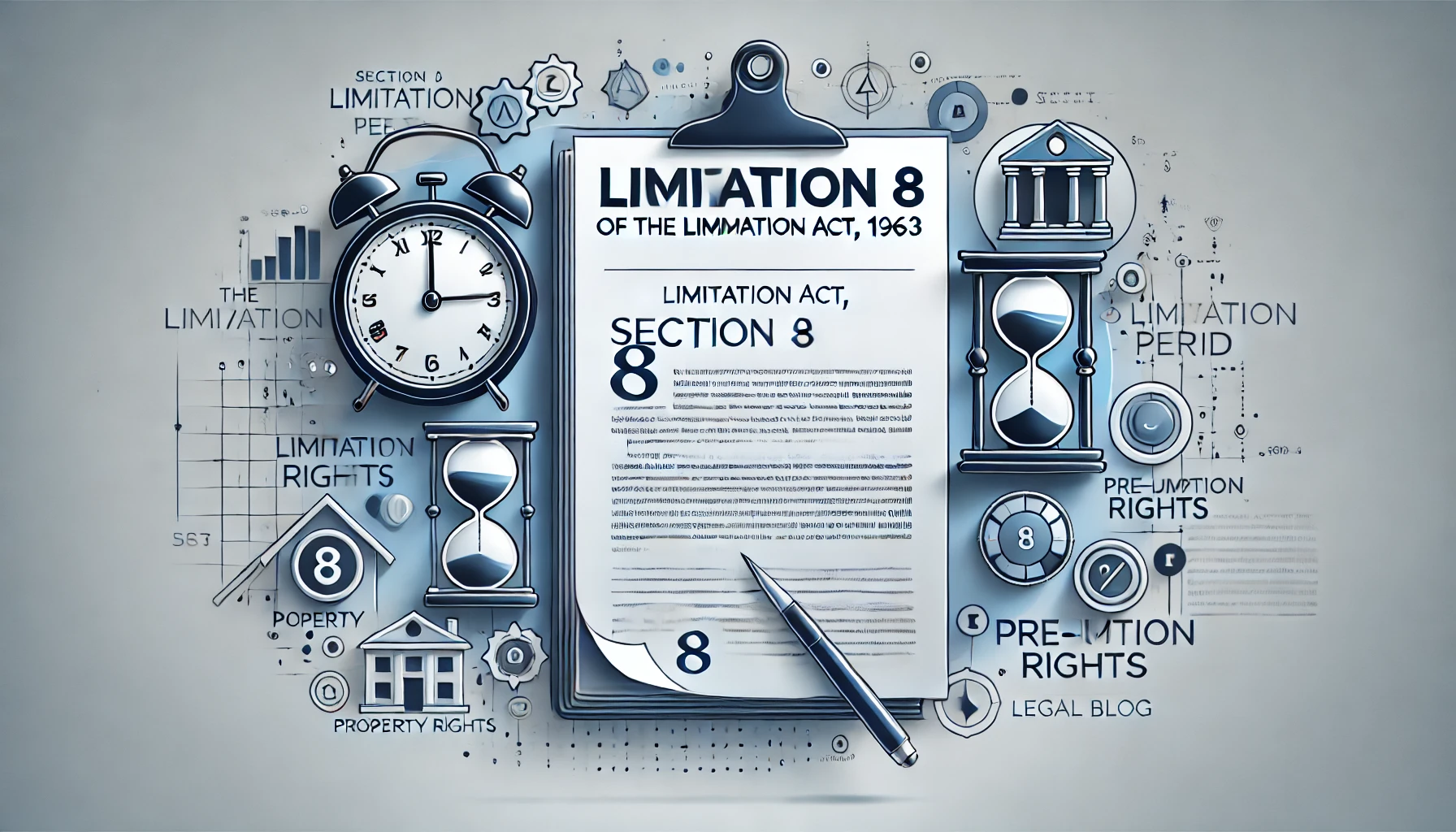Provision
Section 8 of the Limitation Act, 1963, specifies exceptions to the application of Sections 6 and 7 regarding the extension of the limitation period due to legal disability. It outlines particular circumstances where the extension provided under Sections 6 and 7 does not apply.
Key Points
- Exceptions to Legal Disability Provisions
- Section 8 stipulates that the provisions for extending the limitation period due to legal disability, as mentioned in Sections 6 and 7, do not apply to certain types of suits.
- These exceptions ensure that specific legal actions must adhere strictly to the prescribed limitation periods, regardless of any legal disability of the persons entitled to file the suit.
- Types of Suits Excluded
- Rights of Pre-emption:
- Suits to enforce rights of pre-emption are excluded from the provisions of Sections 6 and 7.
- Pre-emption refers to the right of a person to acquire property in preference to others, often seen in property law, where a neighboring landowner has the right to purchase property before it is offered to outsiders.
- Possession of Immovable Property:
- Suits for possession of immovable property or an interest therein are also excluded.
- This includes suits seeking recovery of property or asserting a right over immovable property.
- Rights of Pre-emption:
- Condition for Exclusion
- The exclusion applies if the legal disability continues up to the end of the prescribed period for filing the suit.
- This means that if the period of limitation expires while the person is still under a disability, the extension provisions do not apply, and the suit cannot be filed after the prescribed period.
- Rationale for Exclusion
- The rationale behind these exclusions is to prevent undue delay in certain types of legal actions that require timely resolution, such as those involving property rights.
- It ensures that the enforcement of specific rights is not unduly delayed, maintaining legal certainty and stability in matters related to property and pre-emption rights.
- Illustration
- If X has a right of pre-emption over a piece of land and is a minor when the cause of action arises, the limitation period will not extend beyond the prescribed period, even if X remains a minor when the period expires.
- For instance, if the prescribed period is three years, X must file the suit within three years from the date of the cause of action, irrespective of the minority.
- Legal Impact
- Section 8 imposes a strict adherence to the limitation period for specific legal actions, ensuring that certain rights are enforced promptly and without undue delay.
- It provides clarity and certainty in legal proceedings related to property and pre-emption rights, preventing the extension of limitation periods due to legal disabilities.
Conclusion
By outlining these exceptions, Section 8 of the Limitation Act, 1963, ensures that the provisions for extending the limitation period due to legal disability do not apply to critical legal actions that require prompt resolution.

